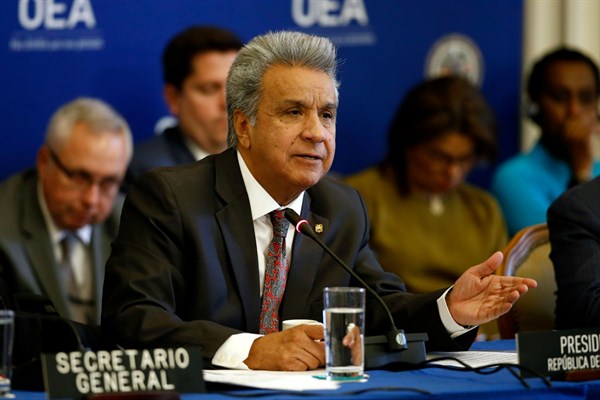Earlier this month, Ecuadorian President Lenin Moreno announced that he was stripping Wikileaks founder Julian Assange of the asylum he’d been granted in Ecuador’s London embassy in 2012, under former President Rafael Correa. Moreno claimed that Assange had violated the terms of his asylum, but the decision was also part of Moreno’s broader effort to take Ecuador in a different direction after Correa’s autocratic presidency, says Carlos de la Torre, a professor of sociology at the University of Kentucky. In an interview with WPR, he explains how Moreno has reoriented Ecuador’s foreign and domestic policy since taking office in May 2017.
World Politics Review: Why has Moreno adopted a stance that is friendlier toward the U.S. and to institutions like the International Monetary Fund since taking office in May 2018?
Carlos de la Torre: Correa’s foreign policy was largely based on anti-imperialist and nationalist rhetoric. Under his administration, Ecuador aligned itself with leftist governments in Cuba and Venezuela and defied the United States by giving asylum to Wikileaks founder Julian Assange in 2012. Meanwhile, Correa’s administration was repressing the Ecuadorian left and going to war with the media.

